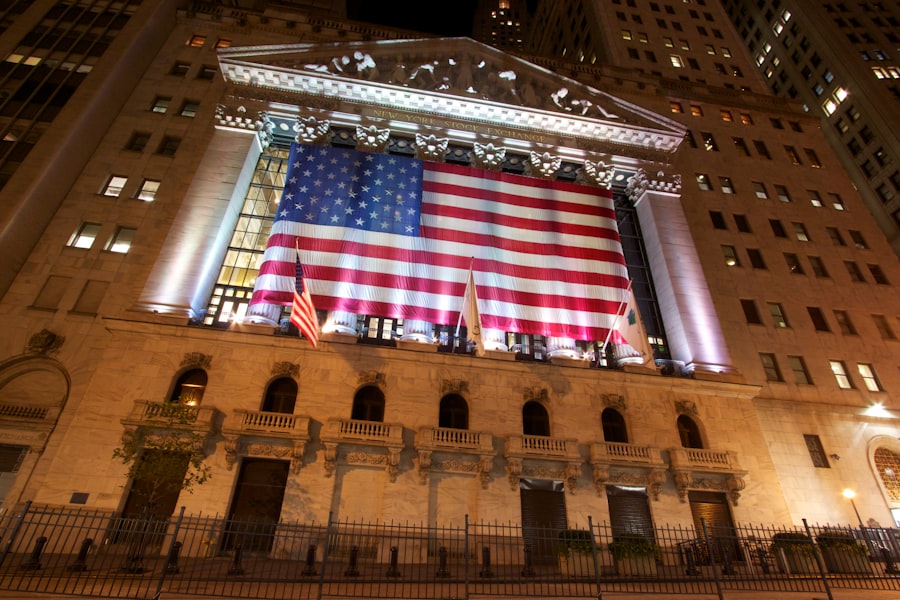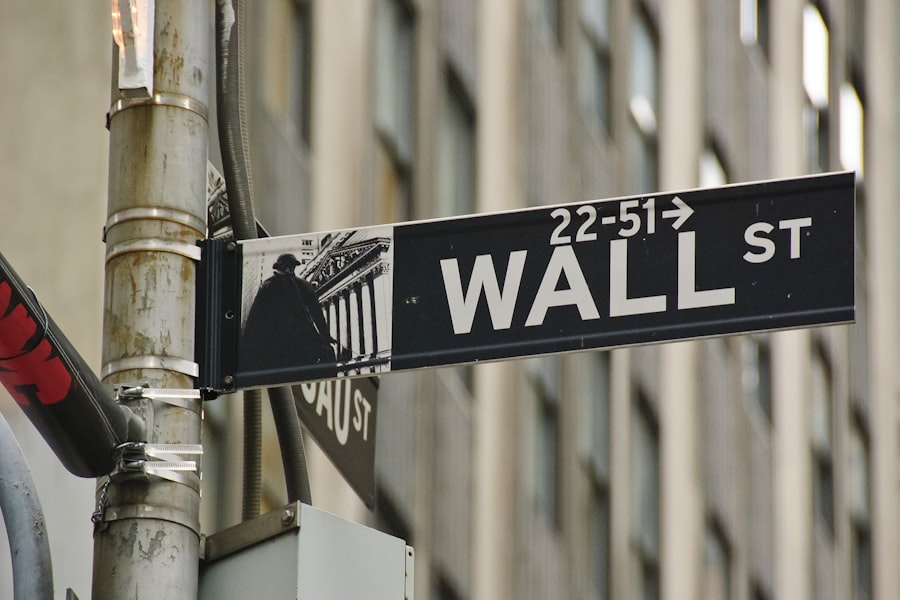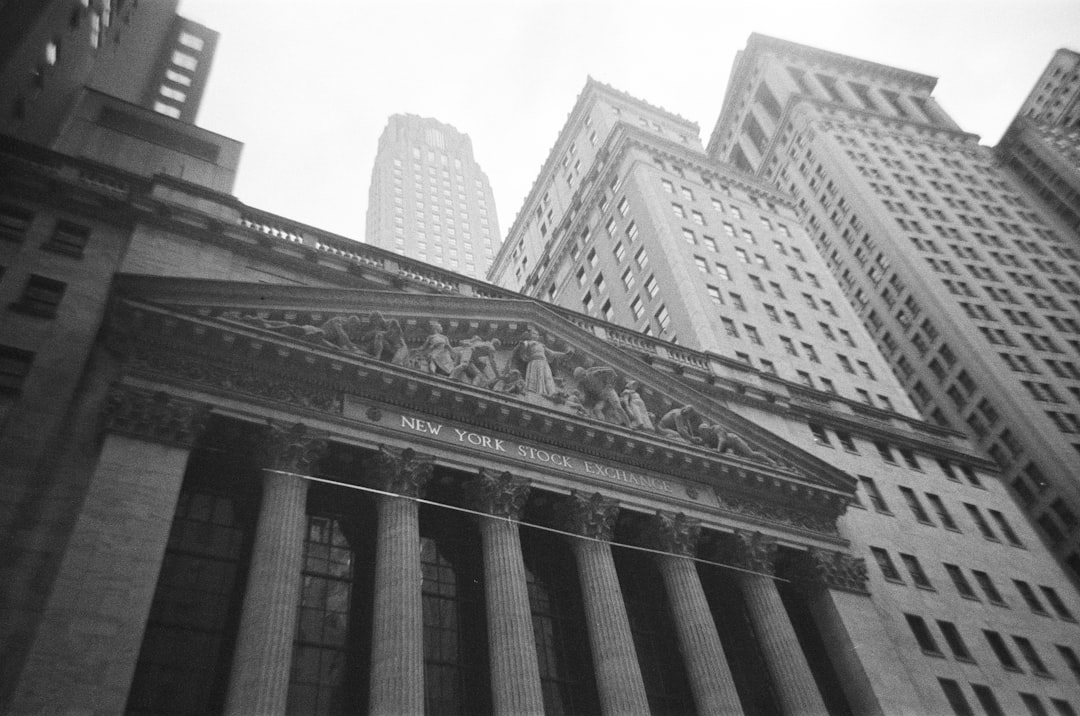The concept of unregulated financial markets can be traced back to the early days of commerce, where trade was conducted with minimal oversight. In these nascent markets, individuals engaged in transactions based on trust and personal relationships rather than formal regulations. As economies evolved, the need for more structured financial systems became apparent, yet the allure of unregulated markets persisted.
You may find it fascinating that the rise of globalization in the late 20th century further fueled the expansion of these markets, as barriers to trade and investment were lowered. This shift allowed for greater capital mobility, leading to the emergence of various financial instruments that operated outside traditional regulatory frameworks. As you delve deeper into the history of unregulated financial markets, you will discover that the deregulation movements of the 1980s and 1990s played a pivotal role in shaping their current landscape.
Governments around the world began to embrace free-market ideologies, believing that less regulation would spur innovation and economic growth. This belief led to significant changes in financial legislation, allowing institutions to engage in riskier practices without the constraints of oversight. The result was a proliferation of complex financial products and services that often operated in a gray area, making it difficult for regulators to keep pace with the rapid evolution of the market.
Key Takeaways
- Unregulated financial markets have their origins in the lack of government intervention and oversight in the financial sector.
- Risks associated with unregulated financial markets include increased volatility, lack of transparency, and potential for market manipulation.
- Unregulated financial markets can have a significant impact on the global economy, leading to financial instability and economic downturns.
- Speculation plays a major role in unregulated financial markets, leading to excessive risk-taking and market bubbles.
- The lack of oversight in unregulated financial markets can result in fraudulent activities, insider trading, and systemic risks.
- Unregulated financial markets are often linked to financial crises, as seen in the 2008 global financial crisis.
- Unregulated financial markets can influence government policies, leading to deregulation and lax enforcement of financial regulations.
- Consumer protection is compromised in unregulated financial markets, leaving individuals vulnerable to financial fraud and exploitation.
- Technology has played a significant role in the growth and complexity of unregulated financial markets, enabling high-frequency trading and algorithmic manipulation.
- The debate surrounding regulation of financial markets continues, with arguments for both stricter oversight and maintaining market freedom.
- The future of unregulated financial markets remains uncertain, with ongoing discussions about the need for regulatory reforms to prevent future financial crises.
The Risks Associated with Unregulated Financial Markets
Engaging in unregulated financial markets comes with a myriad of risks that can have far-reaching consequences. One of the most significant dangers is the lack of transparency, which can lead to misinformation and manipulation. Without regulatory oversight, you may find it challenging to assess the true value of assets or understand the risks associated with certain investments.
This opacity can create an environment ripe for fraud, where unscrupulous actors exploit unsuspecting investors. As a participant in these markets, you must remain vigilant and conduct thorough due diligence to protect your interests. Another critical risk associated with unregulated financial markets is the potential for systemic instability.
When financial institutions operate without adequate oversight, they may engage in reckless behavior that jeopardizes not only their own stability but also that of the broader economy. You might recall events like the 2008 financial crisis, which was partly fueled by unregulated mortgage-backed securities and derivatives. The interconnectedness of global financial systems means that a failure in one area can trigger a domino effect, leading to widespread economic turmoil.
As you navigate these markets, it is essential to recognize the potential for cascading failures and the impact they can have on your investments.
The Impact of Unregulated Financial Markets on the Global Economy

The influence of unregulated financial markets extends far beyond individual investors; it has profound implications for the global economy as a whole. When these markets operate unchecked, they can contribute to economic volatility and uncertainty. You may notice that fluctuations in asset prices can lead to shifts in consumer confidence and spending patterns, ultimately affecting economic growth.
The lack of regulation can also result in capital misallocation, where resources are directed toward speculative ventures rather than productive investments that drive innovation and job creation. Moreover, unregulated financial markets can exacerbate income inequality and social disparities. As wealth becomes concentrated among those who can navigate these complex environments, you may observe a widening gap between the affluent and those who lack access to such opportunities.
This disparity can lead to social unrest and political instability, as marginalized groups demand greater accountability and fairness in economic systems. As you consider the broader implications of unregulated financial markets, it becomes clear that their impact reaches far beyond mere financial transactions; they shape the very fabric of society.
The Role of Speculation in Unregulated Financial Markets
| Metrics | Data |
|---|---|
| Speculation in Financial Markets | High levels of speculation can lead to increased market volatility |
| Unregulated Markets | Can attract speculative behavior due to lack of oversight and regulation |
| Impact on Prices | Speculation can lead to rapid price changes, creating opportunities for profit but also increasing risk |
| Market Stability | Excessive speculation in unregulated markets can undermine market stability and lead to financial crises |
Speculation plays a central role in unregulated financial markets, often driving price movements and creating volatility. As an investor, you may be drawn to speculative opportunities that promise high returns, but it’s crucial to understand the inherent risks involved. Speculators often operate on short time horizons, seeking to profit from price fluctuations rather than investing based on fundamental value.
This behavior can lead to market distortions, where asset prices become disconnected from their underlying worth. In unregulated environments, speculation can escalate into rampant bubbles, where prices soar based on hype rather than sound economic principles. You might recall instances like the dot-com bubble or the housing market bubble, where excessive speculation led to unsustainable growth followed by dramatic crashes.
These cycles not only affect individual investors but can also have cascading effects on entire economies. As you engage with speculative opportunities, it’s essential to maintain a balanced perspective and consider the long-term implications of your investment choices.
The Lack of Oversight in Unregulated Financial Markets
One of the defining characteristics of unregulated financial markets is the absence of oversight mechanisms designed to protect investors and maintain market integrity. In regulated environments, authorities monitor trading activities and enforce rules to ensure fair practices.
This lack of oversight can create an environment where unethical practices thrive, leaving investors vulnerable to fraud and manipulation. As you explore this issue further, consider how the absence of regulatory bodies can lead to a culture of risk-taking among financial institutions. Without checks and balances in place, firms may prioritize short-term profits over long-term stability, engaging in practices that could jeopardize their viability.
This behavior not only affects individual investors but can also contribute to broader economic instability. As you participate in these markets, it’s vital to remain aware of the potential consequences of operating in an environment devoid of oversight.
The Connection between Unregulated Financial Markets and Financial Crises

The relationship between unregulated financial markets and financial crises is a complex one that has been observed throughout history. You may recall several instances where lax regulations contributed to significant economic downturns. For example, the 2008 financial crisis was largely attributed to risky lending practices and complex financial instruments that operated outside traditional regulatory frameworks.
As you analyze these events, it becomes evident that unregulated markets can create conditions ripe for crises, as excessive risk-taking goes unchecked. Moreover, the interconnectedness of global financial systems means that crises originating in unregulated markets can have far-reaching consequences. When one institution fails due to reckless behavior, it can trigger a chain reaction that impacts other entities and entire economies.
As you consider your role as an investor or participant in these markets, it’s essential to recognize the potential for systemic risk and the importance of maintaining a cautious approach.
The Influence of Unregulated Financial Markets on Government Policies
Unregulated financial markets exert significant influence on government policies and decision-making processes. As you observe policymakers grappling with economic challenges, you may notice how lobbying efforts from powerful financial institutions shape regulatory frameworks. These entities often advocate for less oversight, arguing that deregulation fosters innovation and economic growth.
However, this influence can lead to policies that prioritize short-term gains over long-term stability. As you engage with this topic, consider how unregulated markets can create conflicts of interest for policymakers. When government officials are closely tied to financial institutions or rely on their support for campaign funding, it can compromise their ability to enact meaningful regulations.
This dynamic raises important questions about accountability and transparency in governance. As you navigate these issues, it’s crucial to advocate for policies that prioritize consumer protection and market integrity.
The Effects of Unregulated Financial Markets on Consumer Protection
Consumer protection is a critical concern in unregulated financial markets, where individuals often lack recourse against fraudulent practices or misleading information. As a consumer or investor, you may find yourself at a disadvantage when navigating these environments without adequate safeguards in place.
Moreover, unregulated markets can lead to a proliferation of predatory practices that disproportionately affect marginalized communities. You might encounter high-interest loans or deceptive investment schemes targeting those who are less financially literate or lack access to traditional banking services. This exploitation not only undermines consumer trust but also perpetuates cycles of poverty and inequality.
As you engage with these issues, it’s essential to advocate for stronger consumer protection measures that ensure fair treatment for all participants in financial markets.
The Role of Technology in Unregulated Financial Markets
Technology has transformed the landscape of unregulated financial markets, enabling new forms of trading and investment opportunities while also introducing unique challenges. As you explore this intersection between technology and finance, you’ll discover how innovations like blockchain and cryptocurrencies have created decentralized platforms that operate outside traditional regulatory frameworks. While these advancements offer exciting possibilities for democratizing finance, they also raise concerns about security and accountability.
The rapid pace of technological change means that regulators often struggle to keep up with emerging trends. You may find yourself navigating a landscape where new products and services are introduced at breakneck speed, making it difficult for authorities to assess their risks adequately. This dynamic creates an environment where investors must exercise caution and conduct thorough research before engaging with novel technologies.
As you consider your role in this evolving landscape, it’s essential to stay informed about technological developments and their implications for market stability.
The Debate Surrounding Regulation of Financial Markets
The debate surrounding the regulation of financial markets is multifaceted and often contentious. On one hand, proponents argue that regulation is necessary to protect consumers and maintain market integrity. They contend that oversight helps prevent fraud, promotes transparency, and mitigates systemic risks that could lead to economic crises.
As you engage with this perspective, consider how effective regulation can foster trust among investors and create a more stable financial environment. Conversely, opponents of regulation often argue that excessive oversight stifles innovation and hinders economic growth. They believe that free-market principles should prevail, allowing individuals and institutions to operate without unnecessary constraints.
This viewpoint emphasizes personal responsibility and the idea that market forces will naturally regulate themselves over time. As you navigate this debate, it’s essential to weigh the potential benefits and drawbacks of regulation while considering your own values and priorities as an investor.
The Future of Unregulated Financial Markets
As you look toward the future of unregulated financial markets, several trends are likely to shape their evolution. One possibility is increased scrutiny from regulators as governments respond to past crises and seek to implement measures that promote stability without stifling innovation. You may witness a growing recognition of the need for balanced approaches that protect consumers while allowing for entrepreneurial endeavors.
Additionally, technological advancements will continue to play a significant role in shaping these markets. As new tools emerge, they will likely challenge existing regulatory frameworks and prompt discussions about how best to adapt to changing landscapes. You might find yourself at the forefront of this evolution as an investor or participant in these markets, navigating both opportunities and challenges as they arise.
In conclusion, unregulated financial markets present a complex tapestry woven from historical precedents, risks, technological advancements, and ongoing debates about regulation’s role in shaping their future. As you engage with these issues, it’s essential to remain informed and proactive in advocating for practices that promote transparency, accountability, and consumer protection while recognizing the potential benefits that innovation can bring to the financial landscape.
In the realm of financial markets, the topic of unregulated financial markets often sparks intense debate and analysis. These markets, which operate without the oversight of regulatory bodies, can lead to both opportunities and risks for investors. A related article that delves into the intricacies of financial markets and their impact on the global economy can be found on HeyDidYouKnowThis. This article provides valuable insights into how unregulated markets function and the potential consequences they may have on financial stability. For more detailed information, you can read the full article by visiting HeyDidYouKnowThis.
WATCH THIS! 🏦 1 Billion Dollar Scam That Banks Won’t Stop 🤑
FAQs
What are unregulated financial markets?
Unregulated financial markets refer to markets where there is little to no government oversight or regulation. This means that there are no specific rules or laws governing the activities of participants in these markets.
What types of financial instruments are traded in unregulated financial markets?
In unregulated financial markets, a wide range of financial instruments can be traded, including stocks, bonds, commodities, derivatives, and foreign exchange.
What are the risks associated with unregulated financial markets?
Unregulated financial markets can pose significant risks to investors, as there is no regulatory authority to ensure fair and transparent trading practices. This can lead to market manipulation, fraud, and other unethical behaviors.
How do unregulated financial markets differ from regulated financial markets?
Regulated financial markets are overseen by government agencies or regulatory bodies that enforce rules and regulations to protect investors and ensure fair and orderly trading. Unregulated financial markets, on the other hand, lack this oversight and are often characterized by a higher degree of risk and uncertainty.
Are there any benefits to participating in unregulated financial markets?
Some investors may be attracted to unregulated financial markets due to the potential for higher returns and greater flexibility in trading. However, it’s important to be aware of the increased risks associated with these markets.
